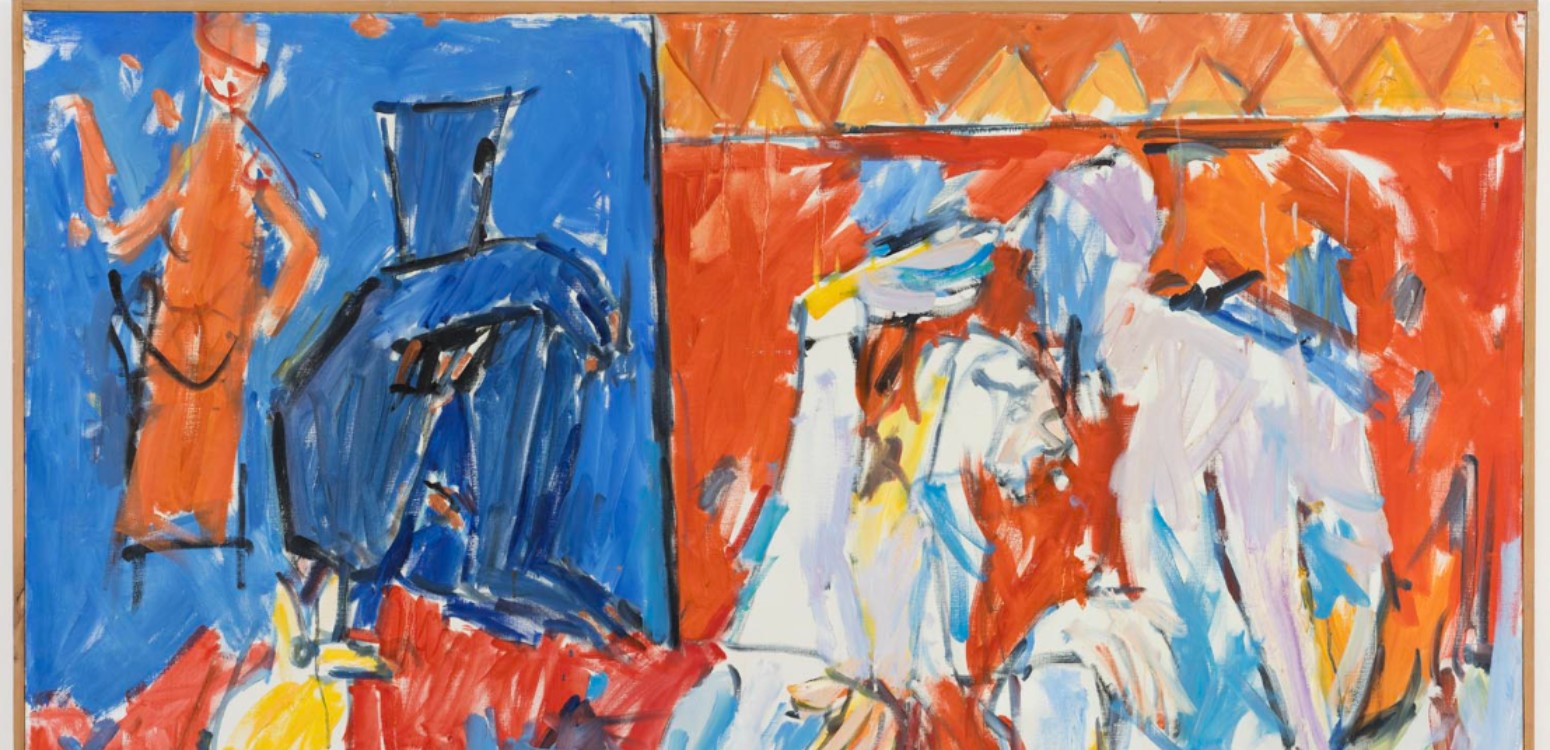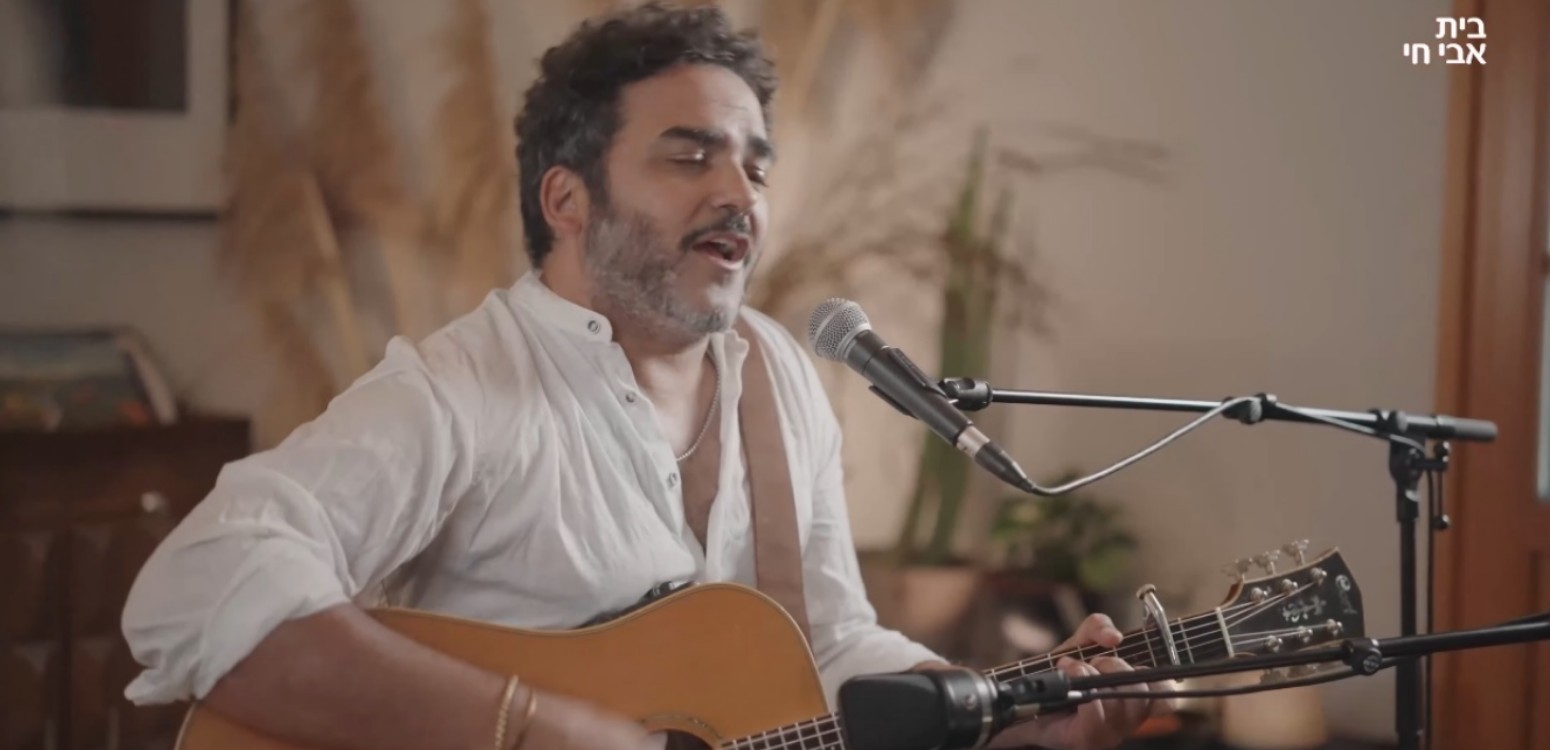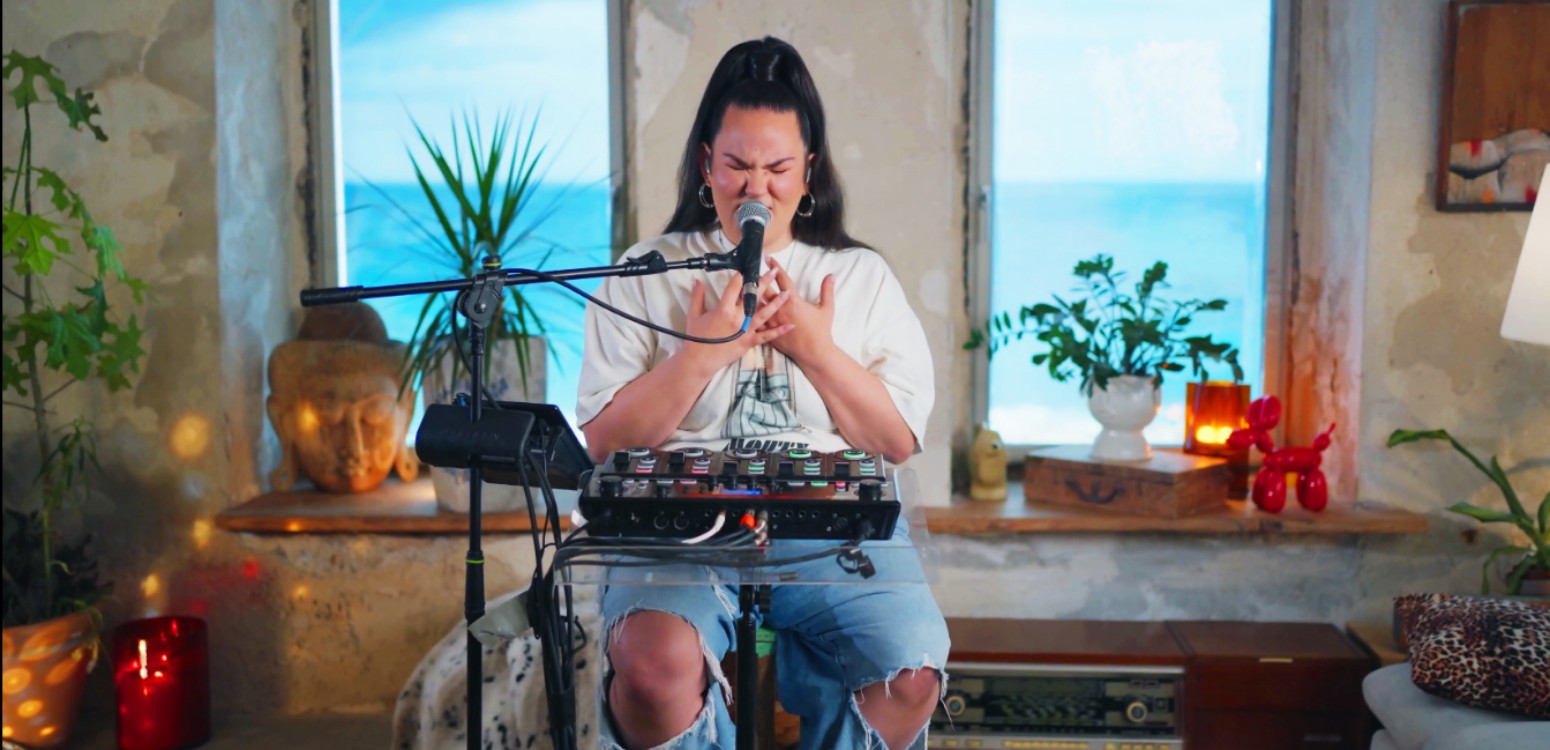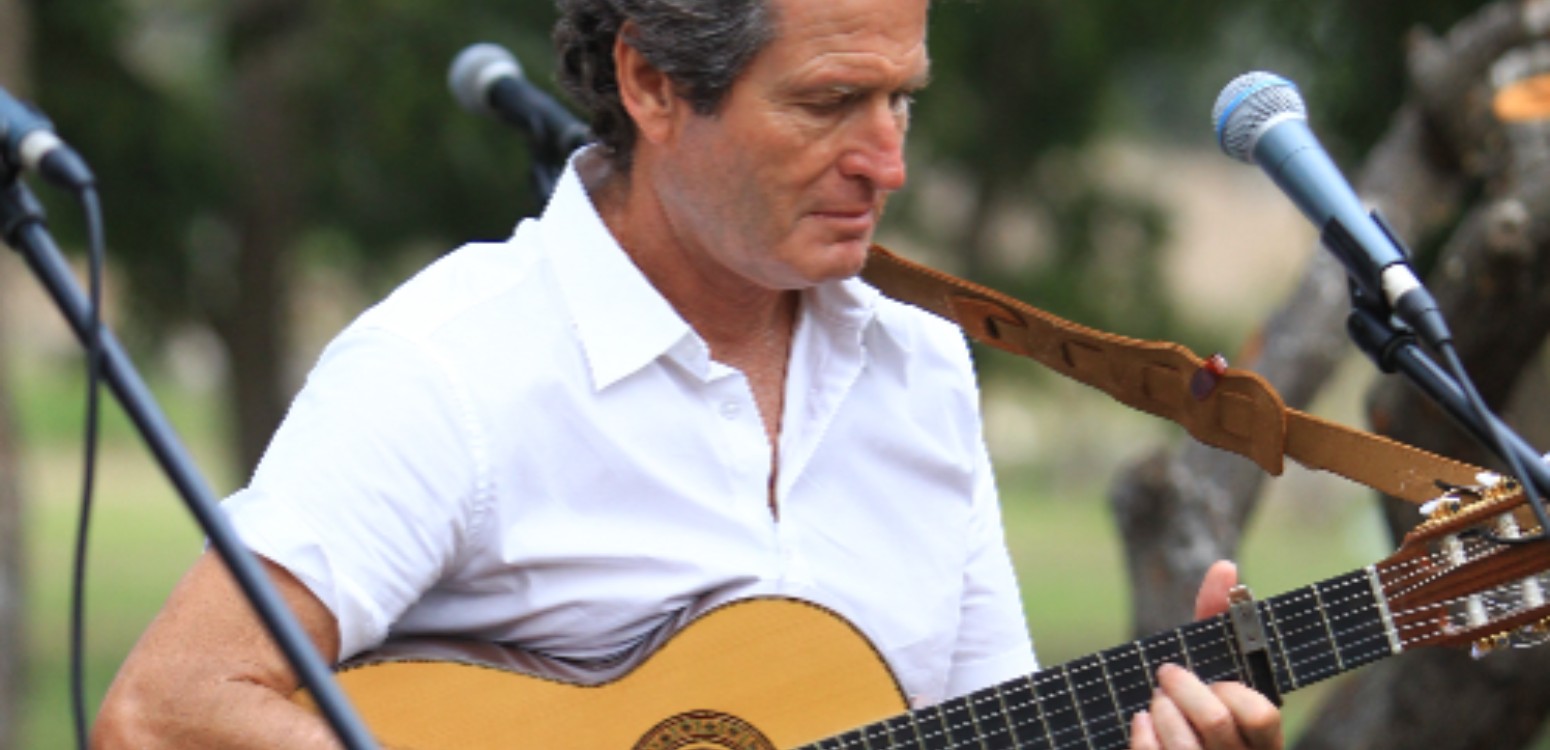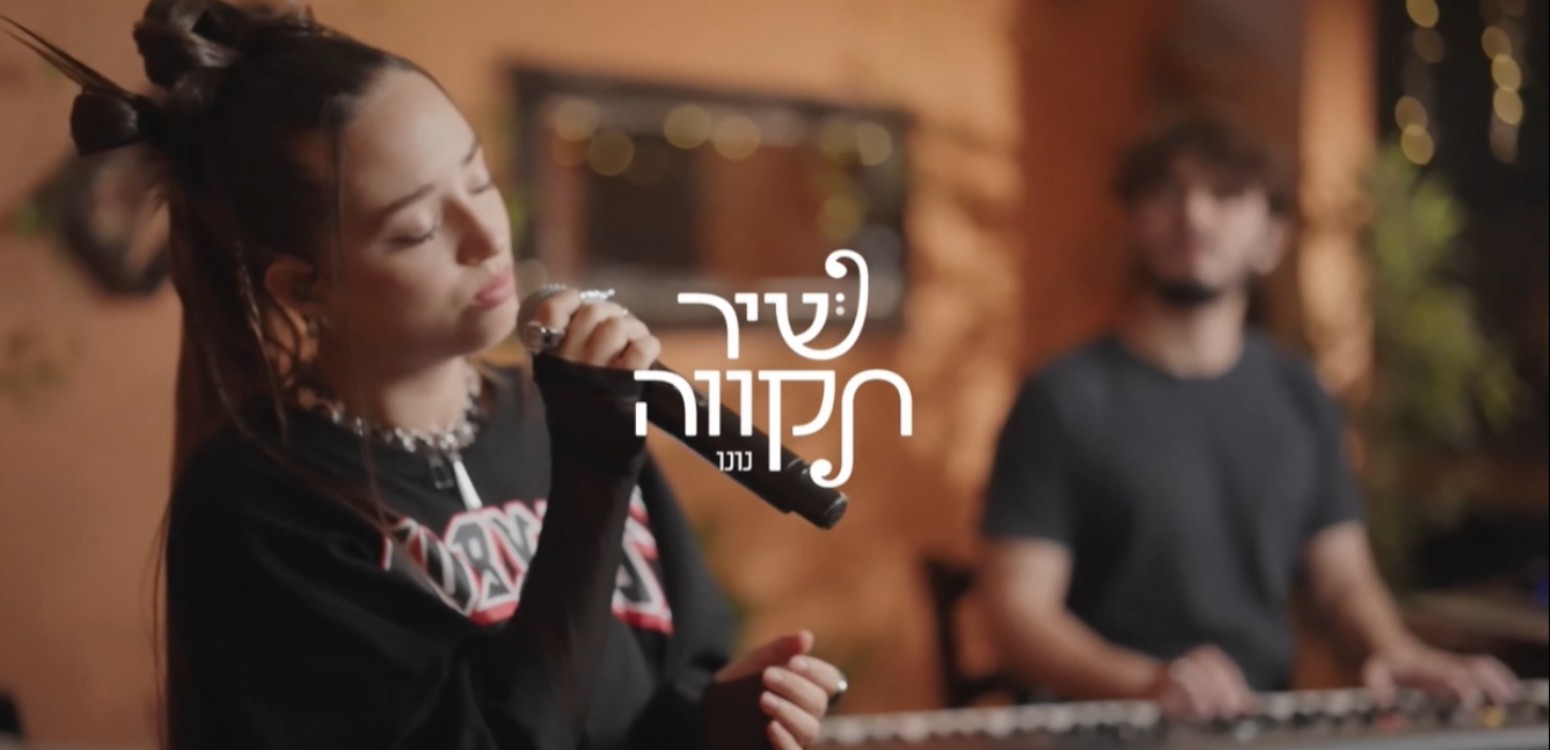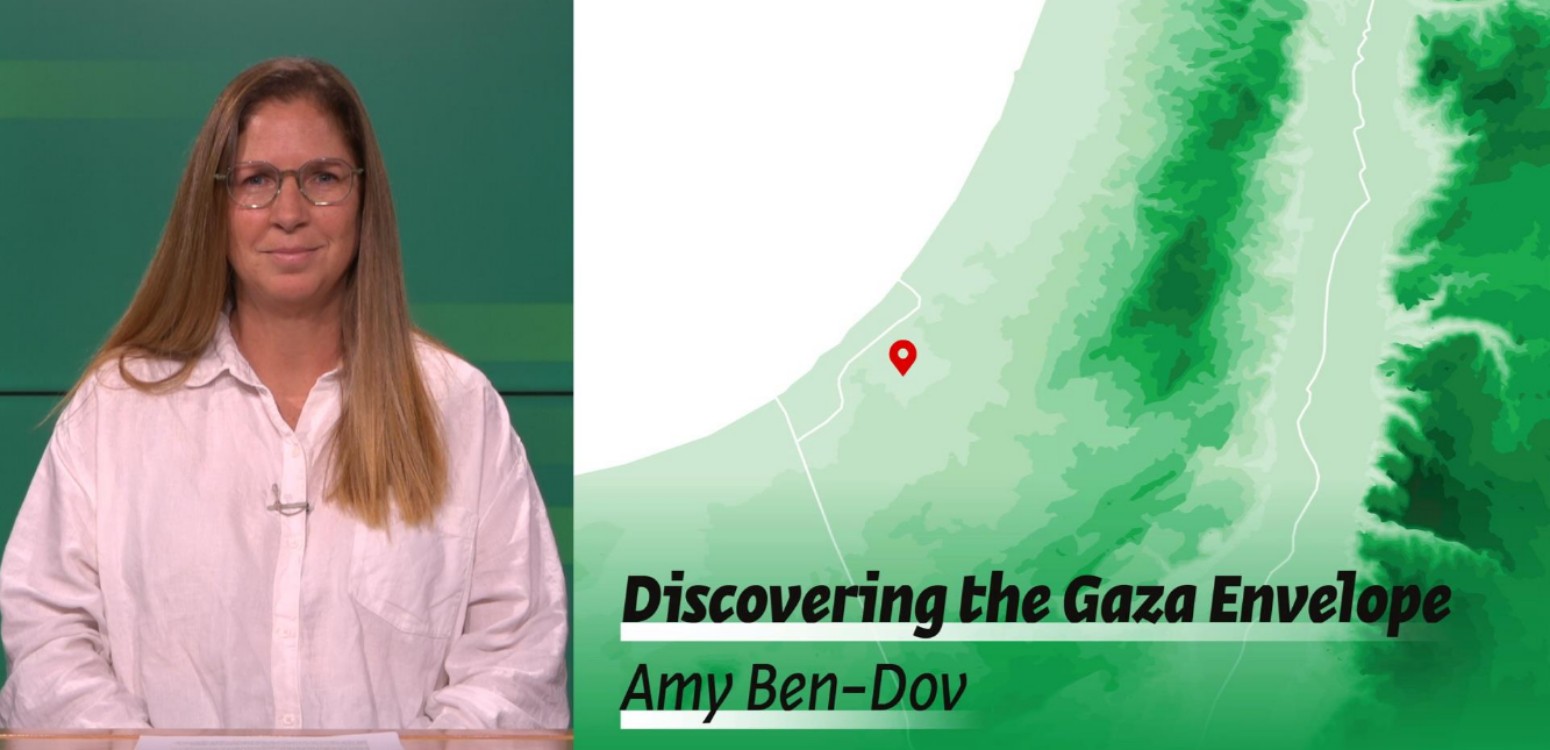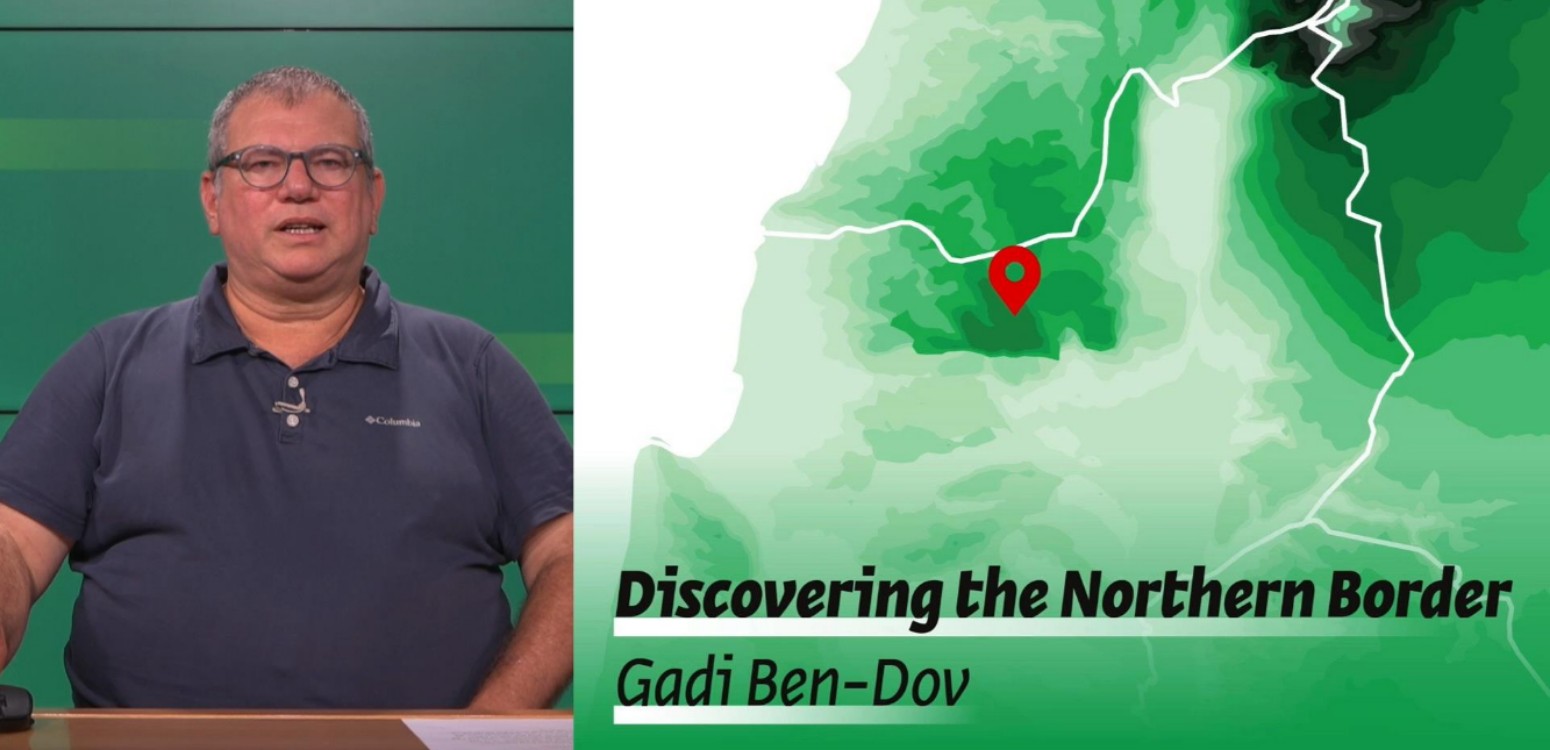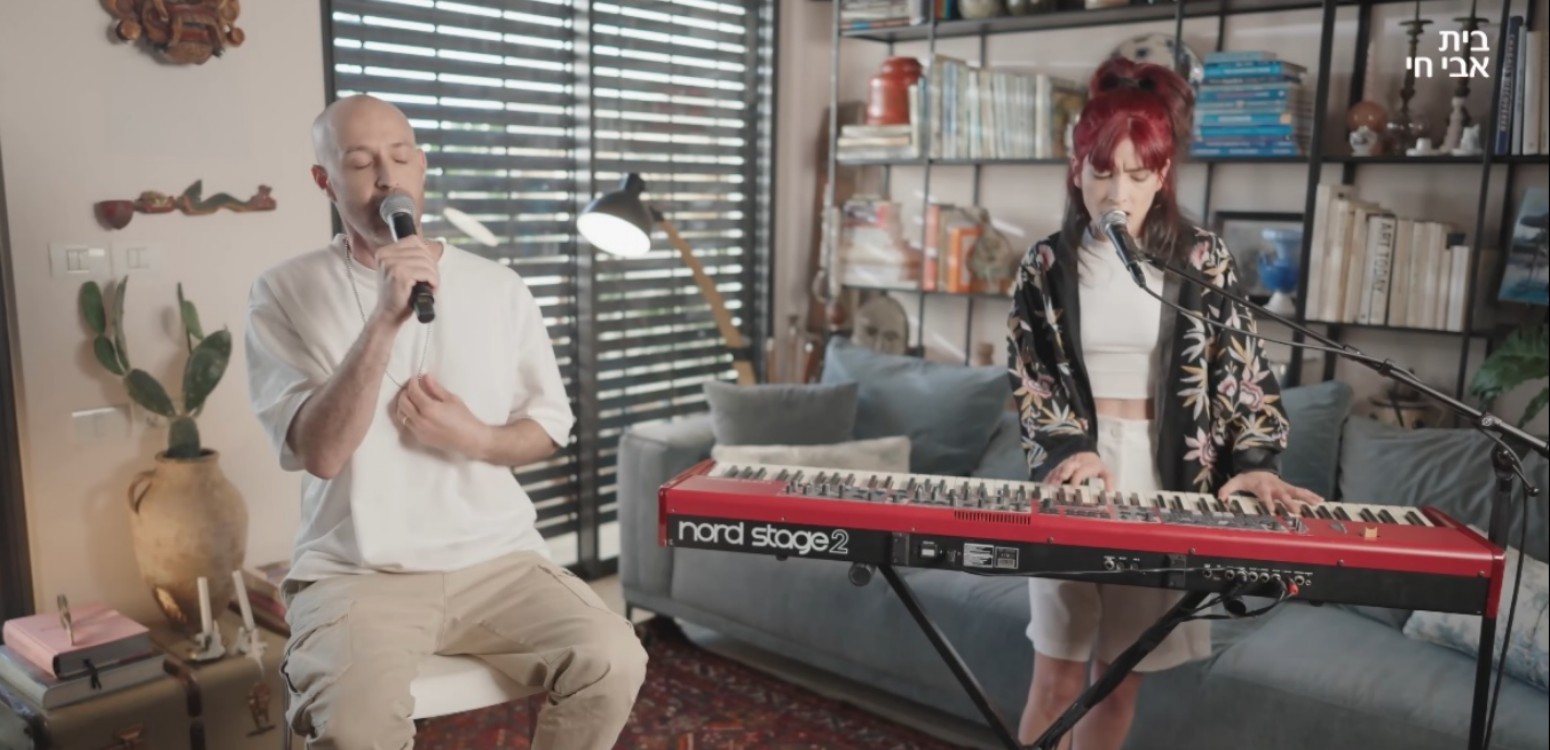“Hope does not come from ignoring something. Hope comes from the possibility of truly living through the brokenness and having a life blossom out of it.” On Beit Avi Chai’s program “Hope Beyond Darkness”, Prof. Merav Roth holds an intimate conversation with Roni Kuban about the power of love, hope and human resilience in the face of disaster
“Loyalty is not measured by dying with the dead, or by being mentally buried with someone who is now in great distress,” says Professor Merav Roth to Roni Kuban. “This is not loyalty – this is an illusion of loyalty. Loyalty for me is to be able to create some kind of a bridge from the person to whom I am connected, from the light in them, the light of now and the light of the future. To return to before October 7, certainly with those who were murdered but also with those who were kidnapped, and to hold on with all my might to all the goodness and the light in them. I insist on not dying of sorrow, but rather taking their light with me, adding it to the light that I will carry with me through life. I say this to the families of the hostages and they quickly understand that.”
You tell them to not just keep in mind their daughter locked up now and suffering in some basement but also remind themselves of some good moments she had before.
“For her and for your own sake hold onto the goodness in her, the strength in her, the beauty in her. I know this from the hostages who have returned, I work with them too: when they were there, what they concentrated on was preserving their strength for their loved ones. Love is a medicine that has no equivalent. This is mutual responsibility – we know that the one who is now in captivity makes every effort, that they say to themselves: ‘My children are waiting for me, I must hold on. ’ The loyalty to this unspoken agreement gives strength to both sides. In Be’eri, I had conversations with the members of the kibbutz when they still didn’t know who was murdered, who was kidnapped. One evening I told them: if you’ve eaten something delicious, if something feels nice, don’t shrink back from it, but rather open the door to it as wide as you can, because it’s antibiotics for your soul, and you need a lot of strength to last you a long time.”
Ever since she started treating survivors of the attack on kibbutz Be’eri, Prof. Merav Roth has been “begging the subconscious” of October 7 survivors, to allow itself to be comforted. Roth is a clinical psychologist, psychoanalyst and cultural researcher, the daughter of the late Israeli radio and TV presenter, playwright, journalist, politician and government minister
Tommy Lapid, the sister of politician Yair Lapid, who served as the 14th Prime Minister of Israel, and the late Michal Durban-Lapid, who was killed in a car crash. In an intimate conversation with Roni Kuban, she talks about her personal familiarity with the shades of grief, the likeliness of finding humanity in the hell of October 7, and about the fact that disaster does not necessarily give rise to post-trauma.
October 7 flooded all of us with all kinds of coping mechanisms and memories and triggers. Was there a moment when, in the inferno after October 7, you suddenly connected somehow to how you personally dealt with things in the past?
“The first moment that comes to my mind is when I was in the Dead Sea region. The day after the evacuation, my husband and I went to the Dead Sea following our daughter, Neta Roth. She is an actress in a kids TV show and she went down there to see if she could bring the evacuated children some joy. There we set up the kibbutz Be’eri treatment center. There was a moment when we entered the room with two children who were about to be informed that their parents had been murdered. A 9-year-old boy and a 13-year-old boy. There is such a silence in front of the door – what awaits us inside? So we enter, and someone from welfare makes the announcement to the children, and then one of the boys cried a lot and the other kept yawning, and the yawns were perhaps even more heartbreaking. Then suddenly something occurs to me and I say to no one in particular: ‘You know both my husband Danny’s father and my own father lost their parents in the Holocaust and they were fat, happy, life-loving people, and we are their children. We have families, just so you know.’ I say this to the room, it’s clear to me that the boys can’t really hear, can’t really understand it, but I beg their unconscious to accept this information. It’s moments like this that connect my personal history, everything I grew up with, to this hell that we all have to deal with, somehow holding onto some hope that these children have a future.”
Your father, Tommy Lapid, whom we all know, had this lust for life, chasing it, realizing it to the fullest, and that’s something you share with these poor children. But on the other hand, he had the other side to him, that of the Holocaust survivor who battled with that nightmare.
“That’s right. That’s hope. Hope does not come from ignoring something. Hope comes from the possibility of truly living through the brokenness and having a life blossom out of it, growing meaning out of it. We grew up like that – building a roadmap out of the nightmare, nurturing faith in the path and a sense of strength. If it wasn’t connected to being a survivor, it wouldn’t have had the authentic strength that I could learn from as a child, and apply it to what I do today.
“My first memory is my dad getting stuck in an elevator, and me watching the situation unfold. I remember him being rescued and that he was scared. It registered with me. His anxieties, his claustrophobia from the ghetto – all these things are inside my body. So is the feeling of adversity from which strength is built rather than strength that is detached from adversity – that is in me too.
“Already on October 8 I started giving the lecture, the title of which in retrospect became ‘Ten guidelines for treating October 7 victims’. And then I asked myself: how could I say anything about it already on October 8? That is the part of me where the Holocaust is already engraved. In a strange way I was almost waiting for something like this to happen.”
You were almost waiting for it?
“I say this in retrospect. When I was trying to understand why I suddenly had answers – what question was I answering? The question was seemingly born the day before, but it probably wasn’t born in me the day before, it has been inside me all my life as some kind of knowledge that this thing can happen in human existence, and that I will have to answer its calling.”
One of the things that happened to me after the beginning of the war was very severe anxieties about a catastrophe, it was hard to cope with that for several months, and little by little they convinced me that it would be okay, that it probably wouldn’t happen, that my anxieties were out of proportion. Then came the night of the Iran missiles. I look at my wife, she looks at me, and I think: “OK, dear therapist, here everything I told you about is happening.” And when it happened, I calmed down.
“Donald Winnicott, one of the founding fathers of psychoanalysis, said: “You are never afraid of what will be, you are always afraid of what was.” After all, what is your fear built on? It is built on history. So in this sense, when you say ‘after October 7 I started to fear’, no, you are afraid of what has already happened. You are drawing it, drafting this future according to the shades of the past. Anxiety is actually a response that goes backwards. You are as if afraid of what has already happened.
“Also, many patients who are generally very anxious relax when something real happens. Because anxiety is formless, our internal world is always more frightening. And suddenly there is a shape, there is some contour, there are some outlines, they organize themselves into something, and if this is something that happens to many people together, they’re not alone at last either.”
When you became a field therapist, an emergency therapist, weren’t you afraid that you would get hurt? That some of this cruelty and evil will burn into you?
“No, but I definitely think that I will forever be a sadder person than I was before October 7. I think that some note of deep sadness from what I saw, we saw, what happened to us, will not be erased. There is a critical mass of human pain, and when it happens all at once, it shatters something within.
“I think that this is what happened to all of us. I think that the generation that experienced this up close – it will remain within them in this way. I think that the danger is that the alternative that we find is in cruelty and murder and revenge. I am very afraid for us as a people, because as a therapist I know this about the soul of the individual – one of the things that characterize people who are cruel and vengeful is that they ‘put the mafia forward’ to protect their weaknesses. If this happens to us as a nation, we are in trouble.”
Society also has a soul, an ethos. Society is also traumatized. And I think one of the strongest things about October 7 that divides life into before and after is that before October 7 you could water your house plants or go to a concert without the country and the situation being on your mind. It’s not possible anymore. You are constantly living with this national cloud over your head.
“Look, one of the things we worked on very, very hard is to help people stop watching the recordings of the events that happened on October 7. Unconsciously we want to return to October 7. People do it in their thoughts, certainly everyone who was in the Gaza Envelope on October 7, they keep thinking about this day because there is the desire to change something in retrospect.
“Even when working with bereaved parents, we say: there is no way for us to change what happened, even if we replay this day again and again and again. This is how it is now. You have to live with this loss. But now there are so many things that can be controlled in a positive way, now that it’s over. And we have to learn to shift our consciousness again and again to here and now – gently and compassionately, because it’s very hurt. There are people who love us and care for us, and for them it’s worth holding on. This is a journey back both from the background and from the past that we collapse into. Everyone says ‘I’m still in October 7’, this expression, ‘one long day that never ends’. We collapse into the worst day of all, and we are drawn to it, while the journey towards “now” always allows for something good, allows doing something for yourself and for your environment.”
You once said that your father, Tommy, promised you children that nothing would ever happen to you, that he would always protect you. And that was actually one of the sources of the rift.
“That’s true. I was very angry with him for a long time. It took me a while to explain to myself that he was right. I was angry with him; he always promised that we would be okay and that he would take care of us. And he really did take care of us, but he did not protect us from what he wanted to think he protected us from. It was a promise of a boy who lost his father in the Holocaust, who wanted to think that he could keep that from happening to us, and through compassion I understood why he gave a promise that he couldn’t really keep. But he did protect us in the sense that we all remained very connected, and also in the end we returned to a full, beautiful, loving, creative life. So he did take care of us. I mean, he gave us strength in the face of reality, it’s not like he could protect us from reality. But in the face of whatever reality that was, he did protect us.”
One of my crises after the war is exactly this. After all, every parent takes on themselves an oath that they might not always spell out in words like your father did, but in which they tell their children “I have your back, I’ll protect you, nothing bad will happen to you.’ And after October 7 I look at my children, and I…
“That’s true. And there are many people to whom this happened in front of their children, who could not shield them from harm. Parents whose children were murdered or kidnapped. The task is to recognize our insignificance in universal terms, to admit our helplessness. I sat with a family that was separated on October 7. The father was with the two children and his son’s girlfriend, and the mother was alone. So we reconstructed the events together. And the father recounts that the house burned down while they were inside. He tells the kids, ‘We have to get out or we’ll all die,’ and they get out and run first and he goes after them. And everyone runs in different directions. And when I met them, they still didn’t know what happened to their two children. Later we learned that the daughter was kidnapped alive and then returned, and the son was murdered. So the father laments exactly the thing we are talking about now. He says, ‘I was supposed to protect them. I couldn’t protect them.’ And I say to him, ‘Tell me what happened up until that moment?’ And we go over everything together, and suddenly the son’s girlfriend says, ‘You said you were holding an iron.’ Then he remembers and says, ‘That’s right, I was holding an iron because there was already a hole in the door and I was holding the iron to it all this time.’ And then I tell him, ‘You know, we don’t know what happened to them. We really don’t know if they were kidnapped, if they were murdered. I know one thing – until the moment it was up to you, they saw their big, strong dad standing by the door, with a big device in his hands, protecting them, doing everything to keep them safe. And they took this picture with them as a gift, I don’t know where.’ That’s what a father can do. It was exactly like this with my dad too. What can a dad do? He can do his best. My father asked that on his gravestone it should be written ‘Did his best’. He always told us, ‘The motto is that whatever you do is the best you can do.’ This is what is possible. This is what we can do. And every day we can do it again.”
I think about one of the big questions that we, with the Holocaust in the background, always ask ourselves: how do you know when it’s time to run away?
“Right, right. We are in these dilemmas.”
Are you really considering it too?
“I’m not.”
Will you never leave?
“I won’t, I won’t leave. We have something to protect here. We still have something to protect. Possibly in the end we will have to preserve it in one variation or another, I don’t know. I’m very worried about the situation. And not just worried, I’m already lamenting all this loss – terrible, unnecessary – that should have been avoided. Don’t get me wrong. Optimism does not mean that I don’t recognize and hurt from the terrible crisis we are in – terrible. Societally, as well as the losses of the soul, and the loss of trust, a lot of loss. And at the same time, I also can see the possible journey back to healing, to rehabilitation, and I believe in it.
“The natural tendency is to quarrel with reality. The possibility of recognizing reality at that moment, surrendering, being humble towards what is the truth and then being connected to what you love and who you love. Also, value-wise, to be connected to what you love and who you love, and to be invested in that. This is the beginning of a journey towards healing.”
